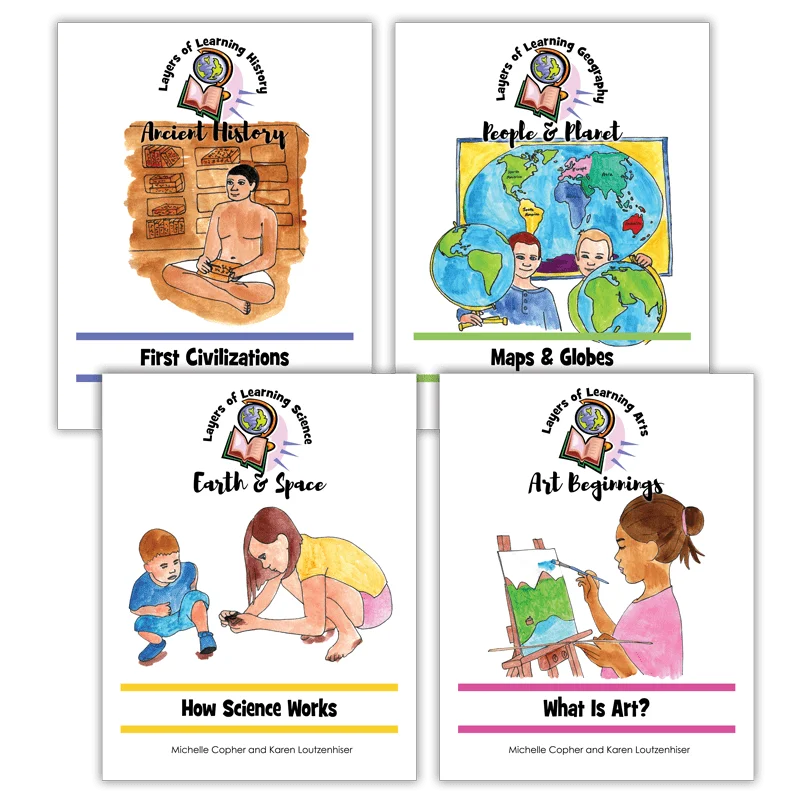There are some books that nearly everyone reads. Animal Farm by George Orwell is one of those. It’s read universally for its important messages. It’s your job as a parent/teacher to get that message across to the kids.
I’ve been reading this book aloud to my kids (ages 6, 7, 11, 12) and we discuss it as we go along, but a discussion at the end would also be effective. Below I’ve written down some discussion questions for the book as a guide.
- At the beginning of the book what do the animals want? Why do they want it?
- What is the Farmer, Jones, like?
- What are the characters and abilities of the various animals? Are they intelligent and educated? Which animals are the most intelligent?
- What is the result of the revolution? Which animals assume leadership?
- Are the animals in the new farm treated equally to one another?
- What are the written laws of Animal Farm? Which animals can read them?
- Over time the laws change. How? Why?
- The pigs create an environment of suspicion and fear. Why do you think they do this?
- Does the condition of the animals on the farm improve or grow worse? Why?
- Eventually one pig, Napoleon, becomes the absolute ruler of Animal Farm. What methods does he use to gain power? Why don’t the animals protest or fight against him?
- Do you think the author used the name “Napoleon” for a reason?
- By the end of the book what is the condition of the animals? Did they achieve what they had wanted?
- What is the condition of the pigs at the end of the book?
- Compare what happened on Animal Farm to real governments in the past or present.
- The United States of America is one of the very few nations in the history of the world that has achieved freedom through revolution. Why did it work in America?
This book goes along well with a discussion of the world between the world wars, the period when totalitarian governments were on the rise, but don’t forget to apply it to yourself today. What lessons can you take from it for your own life and your own government?
Additional Layers
- The names of the animals were chosen very consciously. Provide an explanation of the following names: Mr. Jones, Napoleon, Snowball, Squealer, Moses, the crow, and Boxer.
- Explain in an essay this famous phrase from the book: “All animals are equal, but some animals are more equal than others.”
Free Samples
Try family-style homeschooling now with free samples of four Layers of Learning units when you subscribe. You'll get to try family-style history, geography, science, and arts with your children.
You can unsubscribe any time.



